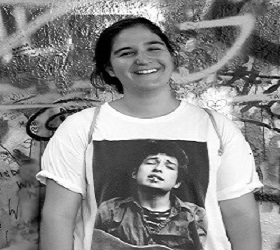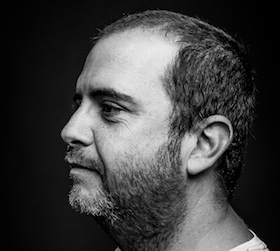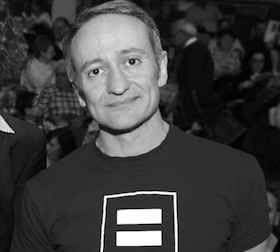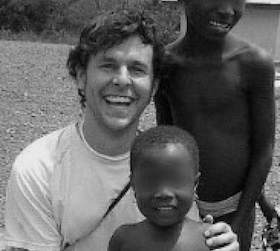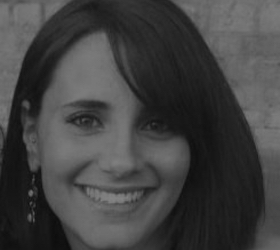
Puedes encontrar el artículo traducido al español en el siguiente enlace: Las Identidades de las ONGs africanas en la protección de los DDHH LGBTIQ+
I. Introduction
Although NGOs have a wide influence and are quickly becoming the dominant study of the field, it remains a highly controversial issue to define what is a non-governmental organization. There is no concept of non-governmental organization recognized or agreed upon in International Law 1. Some scholars say that the only consensus in the field of NGO research is that there is a lot of controversy in this field 2. Although there are many varieties, there are some characteristics that are common to NGOs, such as: no profitability, volunteering, independence, no self-benefit in objectives and values, and legitimacy. Non-governmental organizations are seen as the symbol of the rise of civil society, which represents the rise of private power, and the development of human rights and non-governmental organizations show a mutually reinforcing tendency.
The protection of human rights is recognized as one of the basic principles of contemporary international law. The importance of human rights has been repeatedly raised. As a result, the development of non-governmental organizations has also increased a lot. Not like the often contrary or negligent attitude of states in the protection of human rights, NGOs are very active. Many NGOs establish the objective of protecting human rights. Non-governmental organizations play an important role in the field of human rights, mainly in the following aspects: first, NGOs continue to promote the adoption of international human rights treaties, and as soon as a regulatory gap is detected in a human rights area, through their activities, NGOs will quickly attract attention to that field and promote the development of treaties in this area and that to be signed by the states so that it enters into force. Second, after the entry into force of a treaty, NGOs will monitor the implementation of the treaty by member states. If the behavior of a member state violates the treaty, NGOs will widely disseminate this information in the international community through various channels.
The country can face enormous international pressure, which is why the actions of non-governmental organizations have avoided to a certain extent the violation of human rights treaties. Third, human rights are different from other fields, and the state does not have a strong incentive itself to monitor how a member state treats its own citizens 3. Non-governmental organizations, however, are very active. Once a particular country is prosecuted by a human rights tribunal for violating human rights treaties, NGOs will influence the progress of the judicial process through various channels or will directly sue the country as applicants in the human rights tribunal that is competent, if it exists, helping to correct the violation of human rights and promoting the realization of the human rights justice 4.
In the international community there are three important regional mechanisms for human rights justice: the European Court of Human Rights, the Inter-American Court of Human Rights and the African Court of Human and Peoples' Rights. The European Court of Human Rights is probably one of the most successful international human rights tribunal today. It was established in 1959 under the European Convention on Human Rights in 1950. The Inter-American Court of Human Rights was established in 1979 under the provisions of the American Convention on Human Rights and is similar in structure and procedure to the European Court of Human Rights, many of the American LGBT organizations resort to the IACHR which has had several resolutions favorable to the equality of LGBT persons in its territorial scope of application. The African Court on Human and Peoples' Rights (ACHPR) was established in 2004 under the Protocol of the African Charter on Human and Peoples' Rights on the establishment of a Court of Human and Peoples' Rights in Africa. There are also differences in the legal status of NGOs in the three main human rights courts. This article differentiates the possible status of NGOs from applicants and third parties in order to clarify the different forms of action that NGOs can take and will focus specifically on the ACHPR. Applicant refers to the status that an NGO can adopt if it has been a victim and requests the action of the Court of Human Rights, and third party refers to the presentation of the NGO to the court as agents of the victims or even as "friends" of the court.
II. NGOs as Applicants
Whether NGOs can sue in regional human rights courts is closely related to the legal status of NGOs in International Law, and to what extent.
Until now, the rights of complaints filed directly by non-governmental organizations (as a collective entity representing individuals) are still subject to various restrictions. However, allowing the submission of complaints or lawsuit to these international organizations by individuals and non-governmental organizations represents an important development of International Human Rights Law. In traditional International Law, a person does not have the status of an interested party, since the rights of the person must be defended by the government. However, if the government itself is the offender, how can the government act as the victim's representative, when the government itself is the one that is causing the harm? Therefore, there is a tendency in contemporary International Law to allow individuals to be able to complain to international organizations, and such organizations can demand responsibility, if any, from offenders 5. Allowing complaints from individuals to be processed through non-governmental organizations was obtained in this context, where permitted.
According to articles 55 to 59 of the African Charter on Human and Peoples' Rights, individuals and non-governmental organizations have the right to make individual appeals to the African Commission on Human Rights. After submitting a complaint to the African Commission on Human Rights, the Commission considers whether it is necessary to refer the case to the African Court of Human and Peoples’ Rights. Thus Article 5, paragraph 3 of the Protocol to the African Charter on Human and Peoples’ Rights on the Establishment of an African Court on Human and Peoples' Rights (hereinafter, the Protocol) and Article 33 of the Rules of Procedure of the Court of Human and Peoples’ Rights of Africa provide that the court may grant observer status to relevant non-governmental organizations in the African Commission on Human and Peoples’ Rights, and non-governmental organizations with observer status may file complaints directly to the court. According to Article 6 of the Protocol, the court may request the Commission to express its opinion in deciding whether to accept a complaint lodged by a non-governmental organization. In addition, the eligibility conditions under Article 56 of the African Charter of Human Rights must be met 6. However, the right of NGOs to file complaints directly before the courts is restricted. According to Article 34, paragraph 6, of the Protocol, only countries that accept Article 5, paragraph 3, of the Protocol can be directly sued by an organization before the court. As of January 2019, nine States have accepted the jurisdiction of the Court to receive complaints filed by individuals and NGOs, which are: Benin, Burkina Faso, Cote d'Ivoire, Gambia, Ghana, Malawi, Mali, Tanzania and Tunisia. Rwanda previously accepted the jurisdiction of the Court over individual and group complaints, but in February 2016 it announced that it would withdraw that acceptance, and then formally withdrew in March 2016 7.
Furthermore, according to Article 3 of the Protocol, the African Court of Human and Peoples’ Rights also enjoys advisory jurisdiction. For NGOs to seek judicial advice, Article 4 of the Protocol provides for any "African organization" recognized by the African Union that they may request the court to issue an advisory opinion. There is no official explanation that determines what is meant by "African organizations", and some academics believe that this offers the possibility for NGOs to make requests for advice 8. The facts have shown that this argument is correct, and the NGOs can request the court to issue an advisory opinion. The solicitation for the first advisory opinion in 2012 was presented by the NGO “Socio-Economic Rights and Accountability Project” 9.
According to the resolution adopted at the AU summits in 2004 and 2005, the African Court of Human and Peoples' Rights would merge with the African Court of Justice to establish a new African Court of Justice and Human Rights. According to the Statute of the African Court of Justice and Human Rights, Article IX establishes that the Statute will enter into force after the signature and ratification of 15 member states. Currently, 15 countries have signed the Statute, but no country has ratified the Statute. In accordance with article 30 of the Additional Protocol to the Statute of the African Court of Justice and Human Rights, non-governmental organizations recognized by the African Union could present cases in court. However, the status of acceptance of this paragraph by the member states is maintained, so there is no substantial change in the status of non-governmental organizations in the new courts compared to the African Court of Human and Peoples’ Rights.
III. NGOs as third parties 10
Non-governmental organizations can participate in legal proceedings as third parties, as agents of the victims or as friends of the court (amicus curiae) 11. As agents, the NGOs represent the victims in the Courts of Human Rights to prosecute the country, mainly because the strength of the victims is much weaker than that of the NGOs. NGOs often have extensive practical experience and a strong legal team. And some NGOs can also be relatively strong in finance. These NGOs have more funds and strength to prosecute the country in those International Courts of Human Rights 12.
The participation of NGOs as friends of the court in the judicial process plays a very important role: first, NGOs can provide very professional legal advice, detailed analysis and argumentation of legal opinions, explanation of how the legal articles affect in practice. Many examples over the years show that often the opinions of NGOs are eventually adopted by the court or appear in various forms in the final judgment of the courts. Second, victims may be reluctant to issue certain opinions, facts or demands due to internal political pressure or other considerations. NGOs do not need to consider these factors as much as individual ones; therefore, NGOs can present them on behalf of victims. Third, due to the professionalism of the NGOs, when the case involves a very new or unknown area, the NGOs can help the court understand the field, explain the professional problems involved, examples of good practice or case law compared and provide professional assistance. Finally, NGOs can investigate the facts and provide evidence, reduce the human burden of the courts, save court costs and improve efficiency 13.
In accordance with article 10 of the Protocol (Protocol to the African Charter on Human and Peoples’ Rights on the Establishment of an African Court of Human and Peoples’ Rights) and article 28 of the Rules of Procedure for the ACHPR (2010), any party can appoint an agent to participate in judicial proceedings. This provision allows NGOs to participate in judicial proceedings as agents of victims. In fact, non-governmental organizations participate in the procedure in the ACHPR mainly as agents 14. In accordance with the provisions of article 46 of the Rules of Procedure, the court may require any person or organization to provide information, evidence or express opinions on the case. This provides a legal basis for NGOs to participate in court proceedings as friends of the Court. For example, in the African Commission on Human and Peoples’ Rights v. Libya (2012), the prestigious NGO, “Institution for Human Rights and Development in Africa”, and the “International Center for the Legal Protection of Human Rights” presented themselves as friends of the court to investigate human rights violations on a large scale in Libya 15.
Conclusion
The article tries to be a first approximation on how the African Court of Human and Peoples’ Rights and NGOs interact, (Institution for Human Rights and Development in Africa, International Center for the Legal Protection of Human Rights, etc.) Taking into account the important difficulties faced by LGBTIQ + groups in Africa, we develop this article with great admiration for the work of the African activists and knowing that only they should be the ones who promote an advance of justice and equality before the African institutions. We wish to continue by your side on this path.
Article written by Mo Zhou, volunteer in Africa LGBT.
Notes:
1. Although the Resolution 1296, issued by the Economic and Social Council in 1968, is often cited by academics, it can be seen in the status of the Economic and Social Council and in the content of the resolution that the resolution does not have a universal consensus as the definition of NGO. It is a condition that must be met when the Economic and Social Council grants consultative status.
2. Philip Alston, Non-states Actors and Human Rights, New York: Oxford University Press, 2005. p. 95.
3. Peter J. Spiro, NGOs and Human Rights: Channels of Power, Legal Studies Paper Series ,2009 (6), p. 3.
4. Buhum-Suk Baek, Rights, NHRIS and Human Rights NGOs, 24 Fla. J. Int’l L, 2012, pp. 240-241.
5. Chen Longzhi: Introducción al Derecho Internacional Contemporáneo, Taipei: Yuanzhao Publishing Company, 1999, p. 133.
6. The complaints cannot be anonymous; in accordance with the spirit of the Charter of the African Union, they cannot use insulting language; the evidence cannot come only from news from the media; are submitted within a reasonable period from the time local remedies are exhausted or from the date the Commission is seized of the matter; and it cannot be a case that has been previously accepted or already judged.
7. International Justice Resource Center, https://ijrcenter.org/regional/african/ (The date of visit: April 10, 2019)
8. AP van der Mei, The advisory jurisdiction of the African Court on Human and Peoples' Rights, African Human Rights Law Journal, Vol. 5, Issue 1, 2005, pp. 36-37.
9. More information on the website of the NGO, https://serap-nigeria.org/who-we-are/ (The date of visit: April 10, 2019)
10. The third part of this document refers to the NGOs that participate in the judicial proceedings, without being themselves the applicants.
11. Saratoon Santivasa, “The NGOs' Participation in the Proceedings of the International Court of Justice”, November 2012, Journal of East Asia and International Law, 5(2):4-4, pp. 378-379.
12. Ibíd., pp. 396-403.
13. Dinah Shelton, “The Participation of Nongovernmental Organizations in International Judicial Proceedings”, Vol. 88, No. 4, The American Journal of International Law (611-642), Oct. 1994, p. 617.
14. Lloyd Hitoshi Mayer, “NGO Standing, and Influence in Regional Human Rights Courts and Commissions”, Vol. 36, Issue 3, Article 5, Brooklyn Journal of International Law, 2011, p. 934.
15. Viljoen, F., & Abebe, A. (2014). Amicus Curiae Participation Before Regional Human Rights Bodies in Africa. Journal of African Law, 58(1), 22-44. doi:10.1017/S0021855314000023, p. 37.














